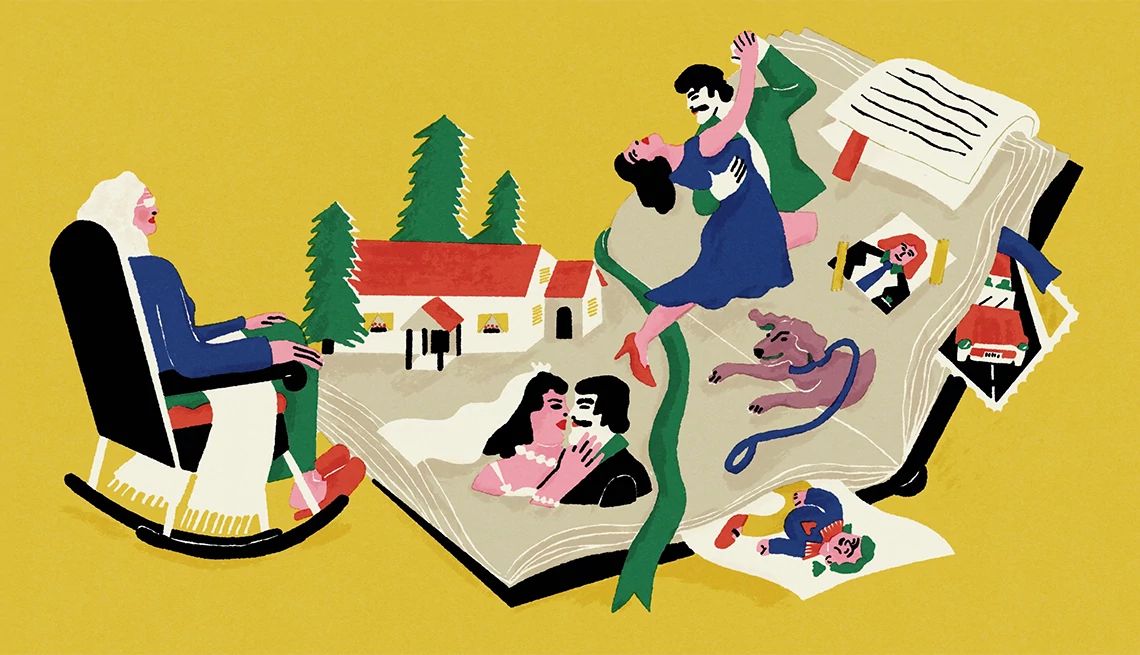AARP Hearing Center


Susan Archibald’s daughter Lauren Archibald knew something about her mother’s work when they were living in Indonesia, but she didn’t know all the details. It was only after Lauren gifted Susan, 65, and now living in Vancouver, Canada, the bookmaking program No Story Lost did Lauren find out interesting tidbits, like how a water buffalo was sacrificed to ward off evil spirits at the opening of a new research facility Susan was involved with.
Leaving a legacy, whether through writing a memoir, creating a scrapbook or capturing memories through an audio or video recording, doesn’t have to be difficult. In fact, some people who’ve done it say that the process is even more rewarding than the final product.
And it’s good for your health. A 2023 study published in the International Journal of Environmental Research and Public Health found that older adults who created digital stories experienced social and emotional benefits from sharing their story with others.
Here is your guide to leaving a legacy based on how you’d like to tell your story.
For those who don’t mind being recorded
It took a cancer diagnosis for Charlie Greene, 32, of Los Angeles, to realize his interest in capturing and preserving memories. He’d lost his father a couple of weeks after his 10th birthday. When Greene’s mother was diagnosed with stage 3 lung cancer in 2017, he asked her if he could record an oral history with her before she started treatment. The result: a wonderful set of videos.
What he didn’t expect was how much closer together it brought his family during a difficult time in their lives. He also loved learning all his mother’s stories, which helped him see her in a new light.
“For me, that was the real aha moment, which was spending time asking myself, why was it that it took a cancer diagnosis to actually sit down with my mom and ask these questions and to learn more deeply about the moments and experiences that made her who she is today?” says Greene.
But he found the process tedious and difficult, he said, to handle on his own. “I had to pick what to ask, how I was going to ask it, how I’d record, what I’d do with the recording, etc.”
The project inspired Greene to create Remento, a fee-based digital platform that enables storytellers, over the course of a year, to record their answers to prompts submitted by their family members, which get turned into written stories that get printed in a book with a QR code at the start of each chapter so that readers can access the recording.































.jpg?crop=true&anchor=13,195&q=80&color=ffffffff&u=lywnjt&w=2008&h=1154)































More From AARP
He Inherited Old Photos and Used Them to Resurrect Family History
'Throwback Thursday' piqued the interest of a new generation
Make Life Easier with These 25 Practical Tips
Try these life hacks to save time and simplify your day
Knowing Your Family's Medical History Can Be a Lifesaver
Have this healthy conversation when you gather together this year
Recommended for You